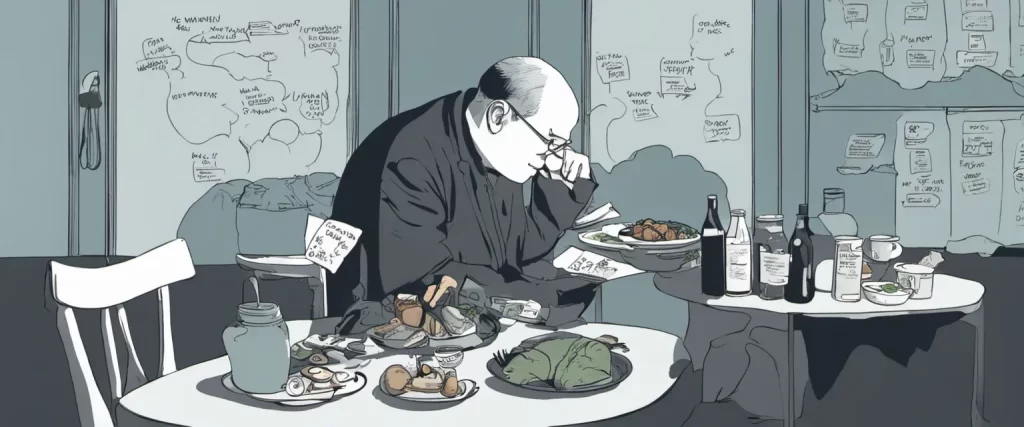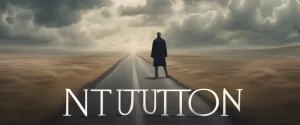——The Omnivore’s Dilemma by Michael Pollan & Shark’s Fin and Sichuan Pepper by Fuchsia Dunlop
In the ever-evolving field of food literature, Michael Pollan’s The Omnivore’s Dilemma and Fuchsia Dunlop’s Shark’s Fin and Sichuan Pepper have emerged as two prominent works that delve into the intricacies of our relationship with food. Both authors embarked on compelling journeys to understand the complexities of the modern food system, each highlighting unique aspects of our culinary world. While Pollan examines the origins and consequences of our food choices in Western societies, Dunlop explores the rich culinary heritage of China, specifically Sichuan province. In this comparative study, we aim to explore the similarities and differences between these two transformative narratives, and the profound impacts they have had on our understanding of food culture, sustainability, and the power of gastronomy.
At the heart of The Omnivore’s Dilemma, Michael Pollan challenges the readers to consider the fundamental question: “What should we eat?” With this inquiry, he embarks on a gripping investigation into the intricate web of industrial agriculture, organic farming, and alternative food movements. His exploration unfolds through three distinct food chains: industrial, organic, and hunter-gatherer. Pollan scrutinizes the societal, environmental, and ethical implications of each, imploring readers to reflect upon the hidden consequences behind their meal choices. In doing so, he uncovers the complexities of our modern food system’s impact on human health, animal welfare, and environmental sustainability. Through meticulous research, Pollan compels us to question the implications of our dietary decisions, ultimately challenging us to make more conscious choices.
On the other hand, Fuchsia Dunlop takes us on an entirely different gastronomic journey in Shark’s Fin and Sichuan Pepper. As a talented chef and fluent Mandarin speaker, Dunlop delves deep into the traditional cuisine of Sichuan province, offering readers a captivating narrative that seamlessly intertwines cultural exploration with the intricacies of Chinese gastronomy. With vivid storytelling, she traverses the streets of Sichuan, immersing herself in the vibrant culinary scene, and unfolds the rich tapestry of flavors and techniques associated with Sichuan cuisine. However, Dunlop’s exploration is not limited to the mere celebration of food; she also delves into the historical and cultural context that has shaped Sichuan’s culinary traditions. Through her personal experiences and encounters, Dunlop draws readers into a world where food forms the very thread that weaves together culture, identity, and history.
While Pollan and Dunlop may seem to diverge in their subject matter, both authors share a common thread in their exploration of the complexities of our food culture. Through their immersive storytelling, meticulous research, and thought-provoking analysis, both Pollan and Dunlop have made significant contributions to our understanding of food systems, sustainability, and the cultural significance of our culinary choices. As we embark on this comparative study, we will delve deeper into the narrative techniques, thematic concerns, and overarching messages of these two seminal works, shedding light on the universal dilemmas we face in our quest for a sustainable and nourishing food future.
Brief Summary of Two Books
The Omnivore’s Dilemma by Michael Pollan
The Omnivore’s Dilemma” by Michael Pollan explores the complex and often confusing choices faced by modern consumers in the American food system. Divided into three sections, the book investigates the origins of four meals that represent different types of food production.
In the first section, “Industrial: Corn,” Pollan delves into the dominant industrial food chain that heavily relies on corn, examining its implications on our health, environment, and economy. He visits corn farms, investigates the presence of corn in processed foods, and highlights the impact of monoculture on soil degradation and genetic diversity.
Moving to the second section, “Pastoral: Grass,” the author explores the alternative of grass-fed livestock. He examines the benefits of organic farming, visits a free-range chicken farm, participates in sustainable hunting, and discusses the ethical aspects of consuming meat.
The third section, “Personal: The Forest,” takes a deeper look into the foraging experience and the natural ecosystems from which humans traditionally sourced their food. Pollan explores the world of hunting and gathering, participating in mushroom foraging and hunting wild pigs.
Throughout the book, Pollan encourages readers to consider their food choices, urging them to question the industrial food complex and reconnect with the sources of their sustenance. By providing a thought-provoking and informative exploration of the food industry, “The Omnivore’s Dilemma” offers readers insights and tools to make more conscious and sustainable decisions about their diet and food consumption.
Shark’s Fin and Sichuan Pepper by Fuchsia Dunlop
Shark’s Fin and Sichuan Pepper” is a memoir written by Fuchsia Dunlop, a British food writer and chef. The book takes the readers on a culinary journey through China, specifically focusing on Sichuan cooking.
Dunlop chronicles her adventures and experiences in China, from her initial fascination with the country’s cuisine to her decision to become the first Westerner to attend the Sichuan Institute of Higher Cuisine. The book offers an insightful exploration of the vibrant, complex, and diverse culinary traditions of Sichuan province.
As Dunlop immerses herself in the local culture, she encounters numerous challenges and discovers the rich history and tradition behind Sichuan cuisine. She shares stories of her encounters with local chefs, farmers, and street food vendors, painting a vivid picture of the gastronomic landscape of Sichuan.
Throughout the book, Dunlop explores not only the flavors and techniques of Sichuan cooking but also the cultural significance of food in Chinese society. She delves into the importance of food in daily life, the connections between cooking and philosophy, and the rituals and traditions surrounding meals.
“Shark’s Fin and Sichuan Pepper” is a captivating memoir that combines Dunlop’s personal journey with her extensive knowledge of Chinese cuisine. It offers a unique perspective on Sichuan cooking while providing a broader understanding of the role of food in Chinese culture.
Comparison between Two Books

Similarities in Food Culture
Both The Omnivore’s Dilemma by Michael Pollan and Shark’s Fin and Sichuan Pepper by Fuchsia Dunlop explore food culture in-depth, highlighting several similarities.
1. Emphasis on Authenticity: Both books delve into the concept of authenticity in food culture. They explore how industrialization and globalization have influenced traditional food practices, leading to a loss of authenticity. They emphasize the importance of preserving and appreciating traditional food ways.
2. Connection to Nature: Both authors emphasize the importance of connecting with nature through our food choices. They argue that understanding where our food comes from and the processes involved in its production helps us develop a deeper relationship with the natural world.
3. Relationship between Food and Identity: Both books explore how food plays a significant role in shaping identity and cultural heritage. They examine food as a means of expressing individual and collective identities, emphasizing the idea that food culture is more than just sustenance—it is a reflection of society.
4. Rejection of Industrial Food System: Both authors critique the industrial food system and its negative consequences on health, environment, and animal welfare. They advocate for a return to more sustainable and responsible food production practices, such as organic farming and small-scale agriculture.
5. Rediscovering Traditional Cuisine: Both authors highlight the importance of rediscovering traditional cuisine and food practices. They encourage readers to explore and appreciate long-standing culinary traditions, emphasizing the value of traditional knowledge and techniques.
6. Education and Empowerment: Both books aim to educate and empower readers to make informed food choices. They provide valuable insights into the complexities of the food system, showcasing the impact of individual choices on personal health and the environment.
In summary, both The Omnivore’s Dilemma and Shark’s Fin and Sichuan Pepper address similar themes related to food culture, such as authenticity, connection to nature, food’s role in identity formation, criticism of the industrial food system, rediscovery of traditional cuisine, and the importance of education and empowerment.
Divergences in Food Culture
The Omnivore’s Dilemma by Michael Pollan and Shark’s Fin and Sichuan Pepper by Fuchsia Dunlop are two influential books that explore different aspects of food culture. While both books delve into the complexities of our relationship with food, they diverge in their focus, scope, and cultural contexts.
One of the main differences between these books lies in their subject matter. The Omnivore’s Dilemma focuses on the broader question of what we should eat given our omnivorous nature, while Shark’s Fin and Sichuan Pepper delves into the specific culinary traditions of Sichuan cuisine in China. The former examines the entire food production chain, from industrial farming to hunting and gathering, to understand the impact of our food choices on health and the environment. On the other hand, Dunlop’s book takes readers on a journey through Sichuan’s vibrant food culture, exploring its history, regional variations, and culinary techniques.
Another noteworthy difference is the cultural context in which these books are situated. The Omnivore’s Dilemma is deeply rooted in North American food culture and addresses the challenges and ethical dilemmas posed by the industrial food system in the United States. It explores issues like corn monoculture, factory farming, organic agriculture, and the rise of alternative food movements. In contrast, Shark’s Fin and Sichuan Pepper provides a fascinating glimpse into Chinese food culture, specifically the rich traditions of Sichuan cuisine. Dunlop’s personal experiences in China provide a window into the social, historical, and cultural factors that have shaped Sichuan’s food culture over centuries.
Furthermore, the scope of these books differs significantly. The Omnivore’s Dilemma covers a wider spectrum of food-related topics, ranging from the ecological impact of various farming methods to the cultural significance of certain foods. Pollan explores topics such as organic farming, food labeling, and the meaning of “natural” foods, as well as the consequences of our obsession with convenience and processed foods. In contrast, Shark’s Fin and Sichuan Pepper takes a deep dive into the specific ingredients, flavors, and cooking techniques of Sichuan cuisine, with detailed descriptions of traditional dishes and their cultural significance.
In summary, The Omnivore’s Dilemma and Shark’s Fin and Sichuan Pepper both contribute valuable insights into food culture but do so from different angles. While The Omnivore’s Dilemma offers a broader examination of our food system, ethics, and sustainability in the context of North America, Shark’s Fin and Sichuan Pepper immerses readers in the intricate and enticing world of Sichuan cuisine.

Conclusion
Both The Omnivore’s Dilemma by Michael Pollan and Shark’s Fin and Sichuan Pepper by Fuchsia Dunlop are highly regarded books in their respective genres. It ultimately depends on your personal interests and preferences as to which book may be more worthy of reading.
The Omnivore’s Dilemma explores the complex food industry and the impact of different food choices on our health, environment, and culture. It delves into topics such as industrial farming, organic food production, and foraging. Michael Pollan presents a thought-provoking examination of our food system and encourages readers to make more conscious choices about what we eat.
On the other hand, Shark’s Fin and Sichuan Pepper is a memoir that delves into Fuchsia Dunlop’s experiences living and studying in China, particularly her deep exploration of Chinese cuisine. She explores regional Chinese dishes, the history of Chinese food, and the cultural significance of various ingredients and flavors. This book offers a captivating and personal journey into the world of Chinese cooking.
Ultimately, if you are interested in exploring the challenges and complexities of the modern food industry, The Omnivore’s Dilemma may be more appealing to you. On the other hand, if you are intrigued by exploring the rich tapestry of Chinese cuisine and its cultural roots, Shark’s Fin and Sichuan Pepper could be the more worthy read. Consider your own interests and which topic resonates with you more deeply to make an informed decision.



